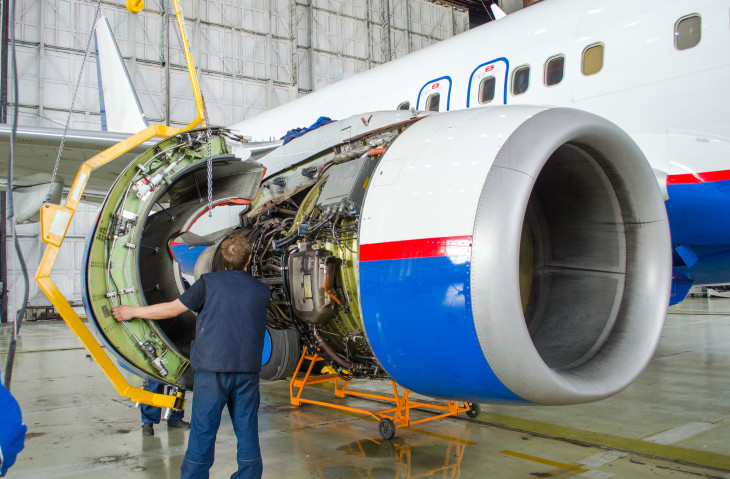Aerospace engineers use the principles of calculus, trigonometry, and other advanced topics in mathematics for analysis, design, and troubleshooting in their work. Aerospace engineers must have a bachelor’s degree in aerospace engineering or some other field of engineering or science related to aerospace systems. Some aerospace engineers work on projects that are related to national defense and thus require security clearances. U.S. citizenship may be required for certain types and levels of clearances.
Education & Training
Typically, aerospace engineers require a bachelor's degree for entry-level positions. Individuals in high school who are considering a career in this field ideally should study the following courses: calculus, physics, trigonometry, algebra, math and chemistry.
Bachelor degree programs combine laboratory work, classroom and field studies. Topics covered include: propulsion, mechanics, engineering principals, control and stability and the study of how moving objects interact with air; aka aerodynamics.
Certain universities and colleges offer a variety of cooperative programs in order to give students practical experience. These programs are offered in partnership with industry to give students a feel for the real world as they complete their studies. Internships and cooperative programs enable students to finance a portion of their schooling while gaining valuable experience.
There are 5 year programs offered at some universities that lead to both a master's degree and a bachelor's degree once completed. Obtaining a graduate degree will enable an engineer to work at a university to conduct development or research or as an instructor. ABET is the accrediting body that programs within aerospace engineering fall into.
Licenses, Certifications, and Registrations
At entry level positions, aerospace engineers are not required to licensed. A Professional Engineer or PE license may be sought by more experienced engineers who take on additional responsibility. Licensure typically has the following requirements:
A) An ABET accredited degree from an engineering program
B) Relevant work experience
C) Passing the FE or Fundamentals of Engineering exam
D) Passing the Professional Engineering exam
It is possible for the FE or Fundamentals of Engineering exam to be taken immediately after graduating with a bachelor's degree. Commonly, Engineers who pass this exam are referred to as EIs or Engineer Interns or EITs as Engineers In Training. EITs are able to take the second exam after they obtain proper work experience. The second exam is known as the PE exam or Principals and Practice of Engineering exam.
Different places require that engineers undergo continuous education courses in order to keep their licenses active.
Skills and Qualities that will Help
Analytical Skills: Problem solving is an important part of this job description. Aerospace engineers need to be able to identify certain design elements that may not meet strict requirements and then have the ability to formulate alternatives to improve their overall performance.
Math Skills: Principals of trigonometry and calculus are utilized along with other advanced topics in design and analysis for troubleshooting.
Critical Thinking Skills: It is necessary for aerospace engineers to be able to translate certain issues into requirements and determine why a specific design does not work. They have to be able to discover the correct question to ask and then work to find an acceptable solution.
Writing Skills: Aerospace engineers have to be able to articulate their ideas by writing papers that clearly explain their designs and create documentation for future reference.
How To Advance
Some aerospace engineers may wish to advance on to supervise a team of technicians or engineers. They may decide to take further training and become technical specialists. Engineering managers is another avenue for those who want to move into more executive positions. Note that preparation to take on a managerial position typically requires time as an apprentice under a more advanced aerospace engineer.









